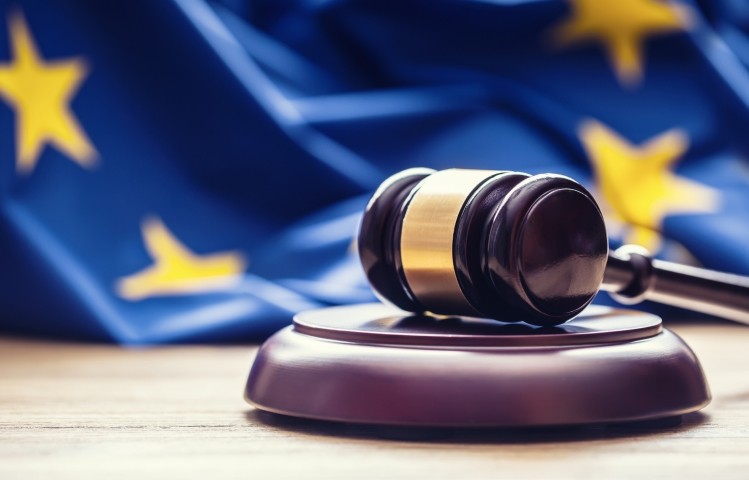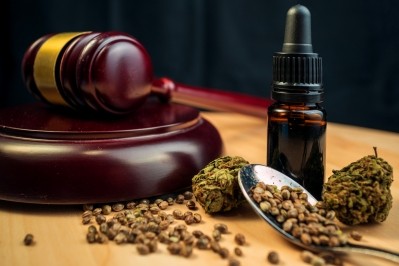CBD businesses raided as regulatory confusion reigns

JP O’Brien is a health-focused entrepreneur who moved from Australia to Ireland with his wife and baby in 2018 to set up a small CBD cafe, Little Collins CBD Dispensary, with the hope of flourishing under EU regulations. But this has been far from the case.
His cafe has been raided on several occasions and his home raided once. He tells NutraIngredients his customers have even been threatened with arrest at their homes after gardaí (the national police service of the Republic of Ireland) intercepted his online orders.
O’Brien is taking the government to high court judicial review over the raids and product seizures, arguing that his products contain less than 0.2% THC.
Chris Allen, executive director of the local industry representative organisation Hemp Federation Ireland (HFI), backs JP and says he is just one example of the huge number of business operators and citizens falling foul to the legal confusion.
“In the space of a few days, there could be several CBD shipments from Europe seized at the Irish border while police raids on retailers in the sector confiscate CBD products that make it onto the shelves. Food business operators are most often arrested, however, ordinary citizens who have continued to buy CBD products are also arrested, charged and prosecuted by Irish authorities.”
Allen points to the Kanavape case of 19th November 2020, in which the European court ruled that CBD is not a narcotic and quotes the court ruling: "A Member State may not prohibit the marketing of cannabidiol (CBD) lawfully produced in another Member State when it is extracted from the Cannabis sativa plant in its entirety and not solely from its fibre and seeds”.
She says that Ireland is the only country not abiding by the European Court of Justice's ruling and that these raids and seizures are in contravention of binding EU law. As such, HFI has published a press statement that calls on the Irish Minister for Health to restore “lawful, scientifically supported, and appropriate regulation” of the hemp industry.
However, it appears the European Court of Justice’s determination in the Kanavape case was more nuanced than this, according to the FSAI (Food Standards Authority in Ireland).
A spokeswoman for the FSAI tells NutraIngredients that the European Court of Justice ruling had no effect on EU food law or how Member States regulate hemp-based foods or ingredients. She says a product sampled from JP’s business was found to contain THC at a level which, if the product was consumed at the maximum permitted dose, would result in the consumption of THC in excess of the European Food Safety Authority (EFSA) acute reference dose (1µg/kg body weight) for a 100kg person.
The spokeswoman says: “The 0.2% THC threshold is often misunderstood as a threshold or tolerance for THC in food in the EU, which it is not. The 0.2% THC threshold in the EU relates only to the import of hemp products (not food) and the availability of direct farm payments for the cultivation of varieties of hemp containing THC at or below 0.2% (REGULATION (EU) No 1308/2013). THC found in food is considered a contaminant, with no threshold or tolerance set at EU level.
“In Ireland, THC is a controlled substance under the Misuse of Drugs Act, 1977 (as Amended) and there is no threshold or tolerance level set, which means that the presence of any level of THC can be considered a breach of that national legislation.”
What’s the upshot?
Adela Williams, partner at the UK based law firm Arnold & Porter (which represents the CBD industry), explains her interpretation of the law and says that although cannabis farmers are allowed to grow cannabis with a THC level of less than 0.2%, subject to appropriate national licenses, that does not automatically mean people can hold products derived from those plants.
"In the Kanavape case, the EU limit for varietals of cannabis sativa which can be cultivated is now 0.3% (previously 0.2%). EU legislation does not address the percentage of THC permitted in products derived from cannabis sativa - which is dealt with under national misuse of drugs legislation.
"EU regulations do not therefore appear to permit sale of products with less than 0.2% THC - they do not address the issue.
"The Court also stated that a restriction on marketing of CBD could be justified on grounds of public interest in accordance with national laws and that different Member States may vary in the way in which they determine the appropriate level of protection to be afforded to public health subject to the measures adopted being proportionate to the intended aims."
The European Court stated in that case: “Discretion relating to the protection of public health is particularly wide where it is shown that uncertainties continue to exist in the current state of scientific research as to certain substances used by consumers.”
She further explains that pure CBD (synthetic or biosynthetic) is not a narcotic and is therefore unlikely to be subject to controls under national misuse of drugs legislation. However any plant derived CBD is likely to include cannabinoids, including those such as THC, which are classed as narcotics – even if only trace amounts are present.
"It is a question of national law, whether these trace amounts of controlled cannabinoids are acceptable if present in products supplied to consumers.
“Therefore any person seeking to import or supply CBD is likely to be required to demonstrate, by analytic methods, that the product does not contain controlled cannabinoids, within the lower limit of detection of the test method. There is currently a general lack of clarity on acceptable laboratories, analytic methods and detection limits and official guidance would be welcome..
“The European Court has said that free movement of CBD lawfully placed on the market in one Member State cannot be prevented, unless this can properly be justified on public health grounds. This could cover national laws on permissible levels of controlled cannabinoids or national rules classifying CBD as a medicinal product.”







